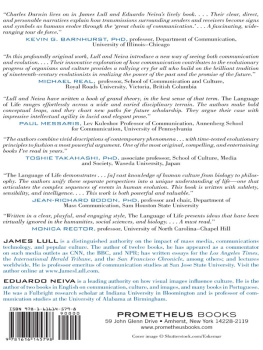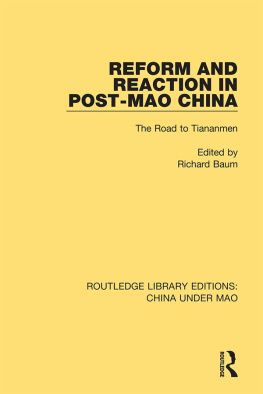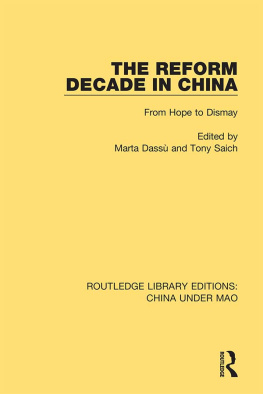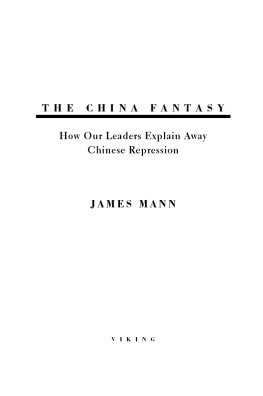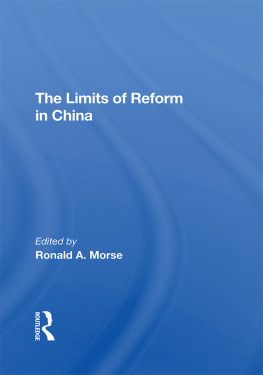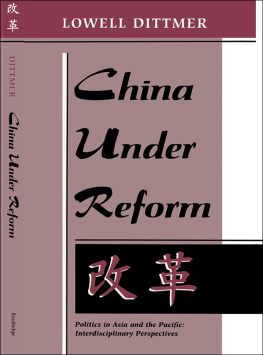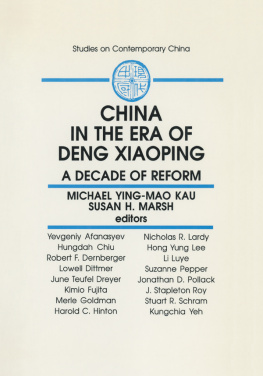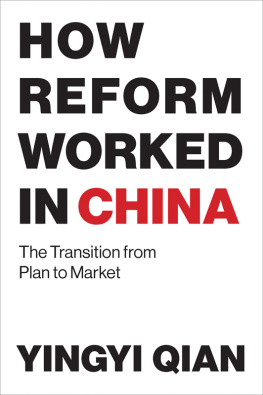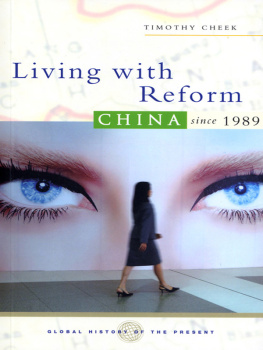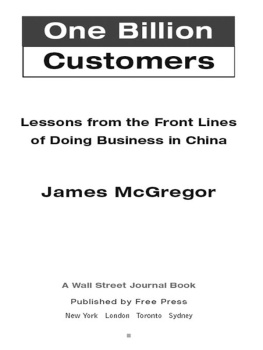James Lull - China turned on : television, reform, and resistance
Here you can read online James Lull - China turned on : television, reform, and resistance full text of the book (entire story) in english for free. Download pdf and epub, get meaning, cover and reviews about this ebook. year: 2013, publisher: Routledge, genre: Politics. Description of the work, (preface) as well as reviews are available. Best literature library LitArk.com created for fans of good reading and offers a wide selection of genres:
Romance novel
Science fiction
Adventure
Detective
Science
History
Home and family
Prose
Art
Politics
Computer
Non-fiction
Religion
Business
Children
Humor
Choose a favorite category and find really read worthwhile books. Enjoy immersion in the world of imagination, feel the emotions of the characters or learn something new for yourself, make an fascinating discovery.

- Book:China turned on : television, reform, and resistance
- Author:
- Publisher:Routledge
- Genre:
- Year:2013
- Rating:4 / 5
- Favourites:Add to favourites
- Your mark:
- 80
- 1
- 2
- 3
- 4
- 5
China turned on : television, reform, and resistance: summary, description and annotation
We offer to read an annotation, description, summary or preface (depends on what the author of the book "China turned on : television, reform, and resistance" wrote himself). If you haven't found the necessary information about the book — write in the comments, we will try to find it.
James Lull: author's other books
Who wrote China turned on : television, reform, and resistance? Find out the surname, the name of the author of the book and a list of all author's works by series.
China turned on : television, reform, and resistance — read online for free the complete book (whole text) full work
Below is the text of the book, divided by pages. System saving the place of the last page read, allows you to conveniently read the book "China turned on : television, reform, and resistance" online for free, without having to search again every time where you left off. Put a bookmark, and you can go to the page where you finished reading at any time.
Font size:
Interval:
Bookmark:


by Routledge
2 Park Square, Milton Park, Abingdon, Oxon, OX14 4RN
by Routledge
711 Third Avenue, New York, NY 10017
A catalogue record for this book is available from the British Library
eISBN: 978-0-203-51517-4 (Set)
ISBN: 978-0-415-83896-2 (Volume 10)
eISBN: 978-0-203-77494-6 (Volume 10)
The publisher has gone to great lengths to ensure the quality of this reprint but points out that some imperfections in the original copies may be apparent.
The publisher has made every effort to trace copyright holders and would welcome correspondence from those they have been unable to trace.

by Routledge
11 New Fetter Lane, London EC4P 4EE
by Routledge
a division of Routledge, Chapman and Hall, Inc.
29 West 35th Street, New York, NY 10001
Printed and bound in Great Britain by Biddles Ltd, Guildford
Lull, James
China turned on: television, reform and resistance.
1. China. Society. Effects of television
I. Title
302.23450951
Lull, James.
China turned on: television, reform, and resistance/James Lull.
p. cm.
Includes bibliographical references and index.
1. Television and family-China. 2. Television broadcastingSocial aspects-China. I. Title.
HQ520.L848 1991
302.23'45-dc20 91-2439
0-415-05216-5 pbk
Font size:
Interval:
Bookmark:
Similar books «China turned on : television, reform, and resistance»
Look at similar books to China turned on : television, reform, and resistance. We have selected literature similar in name and meaning in the hope of providing readers with more options to find new, interesting, not yet read works.
Discussion, reviews of the book China turned on : television, reform, and resistance and just readers' own opinions. Leave your comments, write what you think about the work, its meaning or the main characters. Specify what exactly you liked and what you didn't like, and why you think so.

